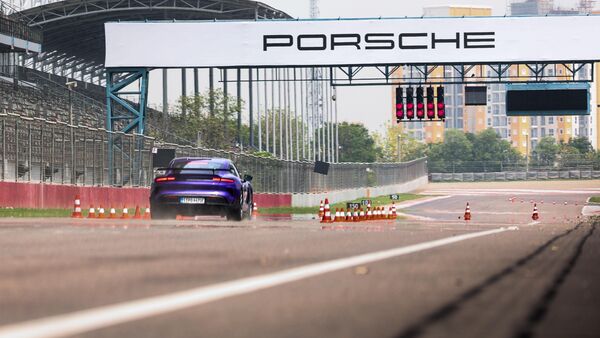The origins of Porsche’s woes are in timing and overreach. After betting heavily on electrification, including plans for in-house battery development and a range of electric SUVs above the Cayenne, the company has been forced to pull back.

View Personalised Offers on
Porsche AG’s inaugural quarterly loss as a public company is a chastening switch for one of the most respected performance automakers globally. For a company founded on exactness and predictability, a €966 million operating loss in the July–September period is as metaphorical as it is monetary, an occasional slip that reveals the conflict between electric aspiration and market harshness.


The origins of Porsche’s woes are in timing and overreach. After betting heavily on electrification, including plans for in-house battery development and a range of electric SUVs above the Cayenne, the company has been forced to pull back.
The decision to cancel its proprietary battery programme and delay several upcoming EV models has come at a cost: roughly 3.1 billion Euro in write-downs this year alone. But beneath the headline numbers lies a broader question, are even the most premium automakers struggling to keep pace with the EV transition?
Also Read : Porsche launches first all-electric Macan GTS globally, but will it reach India?
Enthusiasm for electric vehicles has cooled globally, and Porsche is not immune. Demand in China, its once-dominant growth engine, has slowed as local EV rivals flood the market with cheaper, tech-heavy alternatives. The result is a pause, or what Porsche’s CFO Jochen Breckner calls “a trough year.”
Tariffs and the cost of being global
The other pressure point comes from across the Atlantic. US import tariffs have added roughly 700 million Euro in extra costs this year, according to the company.
Since Porsche doesn’t manufacture cars in the United States, every unit sold there attracts a 15 per cent tariff, a consequence of shifting trade policies. The company plans to offset some of the burden through price increases, but that carries its own risks in a market where luxury customers are becoming more value-conscious.
It’s a costly reminder that global brand strength doesn’t guarantee local immunity.
Leadership reset and strategic recalibration
In January 2026, the company will hand the reins to Michael Leiters, a Porsche alumnus who went on to head McLaren Automotive. His experience with the Cayenne and Macan SUVs may prove vital, as the company doubles down on high-margin combustion and hybrid models to stabilise returns.
A new SUV positioned above the Cayenne, initially planned as all-electric, will now launch with combustion and hybrid powertrains. It’s a quiet but telling admission that the path to electrification may not be straight.
Also Read : Porsche patents new W-shaped 18-cylinder engine with triple turbo layout
Porsche’s third-quarter revenue fell to €8.7 billion, while operating margins collapsed to under 1 per cent. For context, margins once hovered comfortably in double digits, often near 15 per cent.
The bigger picture
What’s happening at Porsche isn’t a meltdown but a correction. The realignment of the company indicates a shifting reality: the electric vehicle adoption curve of the luxury market is flatter than most predicted.
As regulatory push approaches saturation and infrastructure deficits endure, even prestige marques such as Porsche, long regarded as electric performance icons, are compelled to get in line.
From an investor perspective, analysts remain optimistic with caution. Citi analysts think that the underlying performance of Porsche remains healthy with its profitability set to recover by 2026. Bloomberg Intelligence estimates the underlying margin still near 10 per cent, excluding one-off restructuring costs.
Why this matters beyond Porsche
For global automakers, including those in India’s emerging premium EV space, Porsche’s experience is instructive. It shows that even for legacy brands, speed of transition must match market readiness.
Electric isn’t optional anymore, but neither is timing. Porsche’s setback isn’t a loss of direction; it’s a recalibration of pace. As one of the most profitable luxury carmakers learns to balance ambition with reality, the message for the industry is clear: sustainability may be the destination, but profitability still fuels the journey.
Get insights into Upcoming Cars In India, Electric Vehicles, Upcoming Bikes in India and cutting-edge technology transforming the automotive landscape.
First Published Date: 26 Oct 2025, 20:40 pm IST







